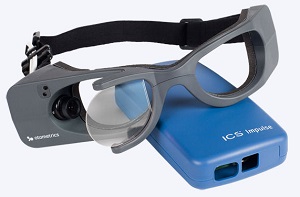Question
Can you give some examples of the clinical applications of head impulse testing?
Answer
Kamran Barin: Sure. For example, when clinicians or ear, nose and throat (ENT) physicians do gentamicin therapy for Meniere's disease, typically the protocol calls for serial auditory testing to determine when the administration of gentamicin should be stopped. There is currently no monitoring of the vestibular function. However, the whole purpose of gentamicin therapy is to kill the vestibular end organ or to destroy the hair cells, yet we have no direct evaluation of the labyrinth or the hair cells, mainly because we’ve never had suitable testing. Caloric testing can’t really be used serially, so this is one application where head impulse testing can be used. It is quite suitable for serial testing because it gives us absolute responses of the vestibular system, it takes very little time to perform and it does not result in adverse reactions from the patient.
The other clinical application would be in the area where you have bilateral caloric weakness and you want to know if it is a true bilateral vestibular hypofunction or whether this is just an artifact because of the heat-transfer issue.
In the past, our gold standard was rotational chair testing, which requires a large space and expensive equipment. Head impulse testing can be done at a fraction of the cost and also in a much smaller space. The Otometrics ICS Impulse is a portable system for video head impulse testing, as you can see in Figure 1. You can take it to the bedside.

Figure 1. Otometrics ICS Impulse unit with goggles.
If you are monitoring ototoxicity, you can do this without the need for rotational chair.
There is also research being done about the role of head impulse testing in the diagnosis of an acute stroke. There was a story done on the CBS Morning News about this application.
Wendy Crumley-Welsh: If you are interested in learning more about the head impulse test, we’re launching live seminars on how to perform the head impulse test starting in June so that the people interested in this device can learn about its clinical relevance and have a hands-on opportunity. The first course is part of a VNG/ENG course presented by Kamran on May 18th at The Allerton Hotel in Chicago. We will be adding more dates along the way. For more information or to pre-register, please visit www.otometrics.com/impulse. You may also visit the Otometrics Expo Page on AudiologyOnline.

